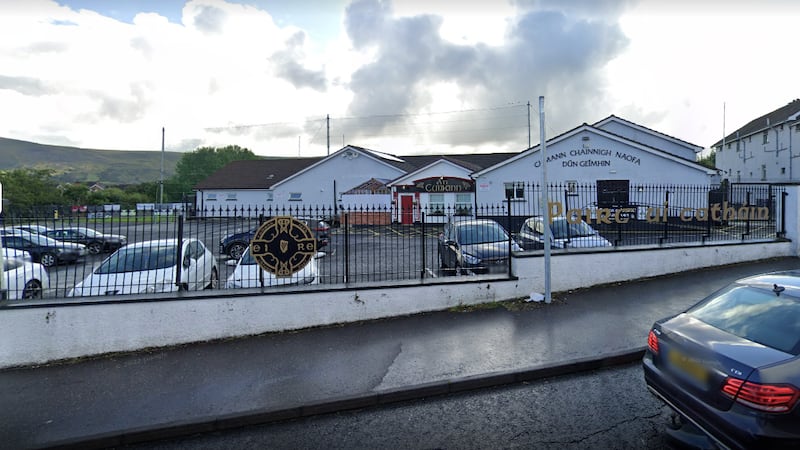Republic of Ireland soccer hero Niall Quinn described how the “jigs and reels” of celebrations following the squad’s biggest every victory in the 1994 World Cup turned to horror after learning of the Loughinisland massacre.
The Dublin-born star attended events on Tuesday to mark the 30th anniversary of the UVF atrocity on June 18 1994, in which six people were murdered in a gun attack at the Heights Bar in the Co Down village as the Ireland vs Italy match played on the pub’s TV.
Speaking to the Irish News in the pub, as relatives of the victims gathered, he described how after the game in New York, in which Ireland beat Italy 1-0, the side was “ecstatic” as celebrations commenced.
Quinn was not part of the squad as he was recovering from an injury, and had been taking part in punditry before learning about the massacre from a US TV interviewer after the game.
“The celebrations were crazy good, and in between the jigs and the reels, I was handing over my headphones and was told a US TV network wanted to speak to me,” he said.
“I thought it was about the victory on the pitch and about how well we had done. So I put on another pair of headphones to listen. I literally was told ‘you know this is about the tragedy’, and I didn’t know what it was, and I had to wait to find out – I was kind of caught cold.
“When I understood what it was – well you can imagine. Talk about flattening the atmosphere. It went from such joy, to sheer disbelief. And suddenly the euphoria we had been experiencing meant nothing.”

Niall Quinn attends commemoration with family members a to mark the 30th
Anniversary of Loughinisland.
Six men were killed by UVF gunmen inside a Co Down bar where they had gathered to watch the World Cup.
PICTURE COLM LENAGHAN
Quinn described how the Irish players got on the bus from the stadium, and sat in shock as they travelled back to their base, a crate of beers intended for the celebrations left unopened.
“It was a very subdued journey,” he said.
“It had been an incredible high, the win, the ecstacy, he stadium, the buzz, the pride of being Irish – and then suddenly, the reality of what happened hits home. It’s a feeling that’s hard to quantify. It’s very seldom you get a high and a low like that, all in the same day.
“Any of us who were there, and got that news, will remember that contrast.”
Quinn added that when asked by a US interviewer what Loughinisland meant for the chances of peace in Ireland, he replied “not in my lifetime”.
“I’m so glad I got that wrong,” he said.
“I’m very happy that I was not right about that. But given where everything was at the time – our backdrop to qualifying for the World Cup was Greysteel, then it was Loughinisland. Two sectarian massacres back-to-back.
“It was a harrowing time.”

Meanwhile, ahead of Tuesday evening’s church service in Loughinisland to remember the victims, survivor Aidan O’Toole, who was aged 26 and working behind the bar when the two UVF gunmen burst in and opened fire, described how the pain of that night remains “very raw”.
“I’m still thinking about it all the time, that pain is never going to go away,” said Aiden, who was shot in the kidney.
“Being in the bar can be tough at times. It’s not made any easier knowing that those behind the attack have yet to face justice. It would help bring some sense of closure.”

Anniversary of the Loughinisland massacre. PICTURE: COLM LENAGHAN
Patrick McCreanor, whose uncle Dan McCreanor and great uncle Barney Green were among the victims of the atrocity, said trying to get truth and justice has been an “uphill struggle all the way”.
He spoke of his last words with Dan, who had been due to go into hospital just two days after the shooting.
“I’ll always remember my uncle saying to me on the Saturday night, ‘Patrick, I’ll see you again, but don’t forget now, I’m going into hospital on Monday’. I never thought in my wildest dreams that would be the last time I spoke to him.”



